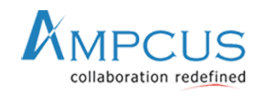Azure DevOps Engineer
 Ampcus, Inc Ampcus, Inc | |
 United States, Tennessee, Nashville | |
 Nov 09, 2024 Nov 09, 2024 | |
|
Must-Have Skills: Experience with Git Version Control Systems: Proficiency in using Git for source code version control. Strong Understanding of Terraform and Azure Client Templates: Solid knowledge and experience in using Terraform and Azure client templates for infrastructure provisioning. Building Release Pipelines (Preferably YAML): Ability to create and manage release pipelines, with a preference for YAML-based pipelines. Experience with Infrastructure as Code (IaC): Familiarity with Infrastructure as Code concepts, with a preference for Azure Resource Manager (ARM) or Bicep for defining and managing infrastructure. Development with Scripting Languages (Preferably PowerShell): Proficiency in scripting, especially PowerShell, for automation and configuration management. Deep Knowledge of Microsoft Azure Service Offerings: In-depth understanding of various Azure services, including Azure Virtual Machines (VMs), infrastructure, databases, serverless functions, web apps, and Azure Kubernetes Services (AKS). DevOps or Systems Knowledge: A strong background in DevOps practices and systems knowledge, including security protocols for client/server environments. Experience with Cloud-Based IaaS and PaaS Solutions: Hands-on experience in working with cloud-based Infrastructure as a Service (IaaS) and Platform as a Service (PaaS) solutions, both on Windows and Open Source/Linux platforms. Containerization and Orchestration: Experience with containerization technologies and orchestration of web services, such as Docker and Kubernetes. Supporting Databases: Experience in supporting and managing databases, with proficiency in at least one of the following: MS-SQL Server, MySQL, MongoDB, PostgreSQL, or Cassandra. Agile Development: Experience working in agile development teams, adapting to emerging technologies, and addressing changing business needs. Expert Knowledge of Software Development Lifecycle: A deep understanding of the software development life cycle, including concepts like test-driven development (TDD), continuous integration, and continuous delivery (CI/CD). Intermediate-Level Knowledge of High Availability: Proficiency in designing and managing high-availability systems, including high-performance and multi-data center setups, as well as hybrid cloud environments. Related Technologies Knowledge: Familiarity with related technologies such as encryption, IPsec, VLANs, VPNs, routing, firewalls, proxy services, and LAN/WAN connectivity. | |

